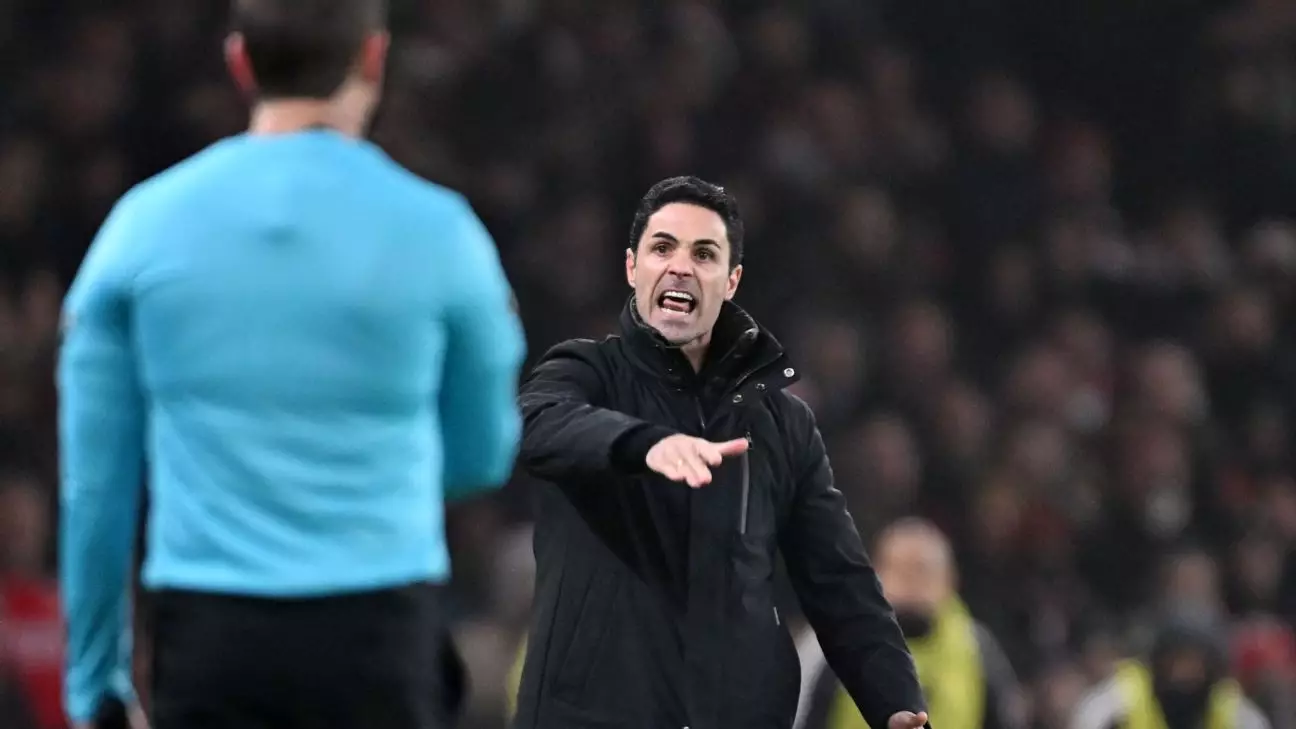In a thrilling encounter on Saturday, Mikel Arteta’s Arsenal found themselves battling both Aston Villa and a contentious VAR decision that thwarted a pivotal match-winning moment. The Gunners showcased an exhilarating first half, racing to a two-goal lead only to witness it evaporate in the latter stages of the game. With Youri Tielemans and Ollie Watkins equalizing for Villa through second-half strikes, the match pulsated with momentum changes. However, it was the disallowed goal that sparked the most debate, as a deflected effort from Mikel Merino, which appeared set to restore Arsenal’s lead, was ruled out for handball after consultation with VAR official John Brooks.
Arteta’s post-match reflection revealed the emotional toll such decisions take on players and supporters. He candidly articulated the frustration that comes from witnessing the jubilation of a potential victory transform into dismay within moments. “From one angle it looks [like a handball] and from the other it doesn’t,” he explained. This ambiguity underscores one of VAR’s critical challenges: the subjective nature of football decisions. Fans often feel deprived of the authentic joy of celebration when the game’s intricacies can unfold in numerous interpretations. This sentiment resonates particularly in the fast-paced spirit of Premier League football, where every goal is not just a point on the board but a surge of elation.
Even the opposing strikers found themselves in a moral quandary regarding the handball incident. Ollie Watkins expressed his uncertainty, suggesting that while the decision swung in Villa’s favor, it was a decision fraught with ambiguity. “I think it’s gone in favour of us a little bit,” he remarked, adding an interesting layer to the discourse on the subjectivity of VAR. This admission highlights an aspect often overlooked: the camaraderie amongst players amid the trials of competition. There exists a shared understanding that the uncertainties of decisions can weigh heavily on the game’s integrity.
As the match concluded, Arsenal’s hopes of reclaiming the Premier League title seemingly dimmed, as they now trail leaders Liverpool by six points. Liverpool’s own victory against Brentford underscored their depth, skillfully leveraging substitutes to alter the narrative of their game. Arteta’s recognition of Liverpool’s squad depth and his team’s injury struggles points to poignant realities within the current title race. The absence of key players like Bukayo Saka and Gabriel Jesus undoubtedly limits Arsenal’s attacking potency, raising questions about their resilience and adaptability in crucial fixture moments.
In summation, the intricate web of emotion, decision-making, and the relentless pursuit of success in football manifests vividly in Arsenal’s clash with Aston Villa. As Arteta and his squad continue to navigate the trials of the season, the lessons learned from this encounter could prove invaluable. While VAR aims to enhance fairness in the game, its implementation remains a double-edged sword, challenging teams to adapt swiftly to both the outcomes and the psychological ramifications of every decision made throughout the match. For Arsenal, the path forward is clear: they must harness their strengths, learn from this experience, and strive to overcome the trials of a demanding season.

Leave a Reply